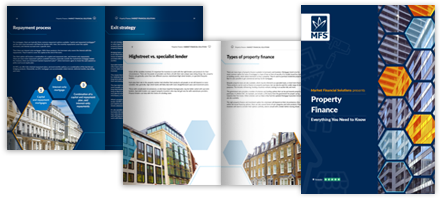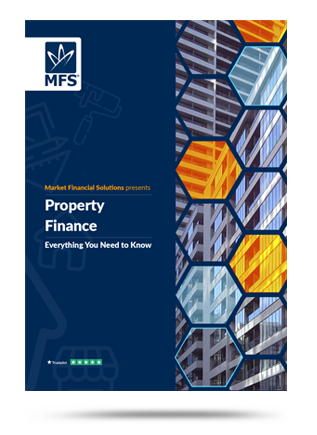Disclaimer
Market Financial Solutions are a bridging loan and buy-to-let mortgage provider, not financial advisors. Therefore, Investors are encouraged to seek professional advice. The information in this content is correct at time of writing.

What is generation rent or rather, who makes up generation rent, can be a tricky question to answer. As the name implies, it concerns an entire generation, but it’s difficult to find an exact age range for this group.
Generally, generation rent is made up of young people who cannot afford to buy homes of their own, and are therefore “stuck” renting. Usually, commentary on generation rent focuses on millennials (those born between 1981 and 1996) and younger adults.
There is also the “Generation Rent[1]” organisation. This is a group dedicated to improving the housing system for renters – pushing landlords, policymakers, and politicians for reforms and amendments wherever deemed necessary.
According to Generation Rent’s own findings:
- 13 million people rent from a private landlord, equating to 20% of the UK population
- 23% of families live in private rented homes, with 46% of under 35’s renting from a private landlord
- The typical rent for a 2-bedroom home is £700, rising substantially in London
- 41% of the average couple’s income is spent on private rental costs, and an estimated 619,000 homes in the UK fail safety standards
For many, the question of what is generation rent isn’t as important as the question of what’s caused this apparent issue, and what can be done to amend it. In this blog, we’ll explore some of these questions.
Why is there a generation rent at all?
A multitude of factors contribute to put homeownership out of reach for many. Simply put, skyrocketing property prices, a lack of supply, and an inability to save substantial amounts for a deposit are holding many back.
The last few decades forced these issues to come to the forefront of the public’s zeitgeist. According to the Institute for Fiscal Studies (IFS)[2], there has been a “substantial fall” in home ownership among young adults since 1997. Some 35% of 25-34-year-olds in 2017 were homeowners, compared to 55% in 1997.
Notable economic shifts were noted and put forward in reference to this:
- Average property prices in England rose by 173% (after adjusting for inflation), and 253% in London since 1997. At the same time, real incomes of 25-34-year-olds only rose by 19% during the same period. Rising house prices, the IFS detailed, benefited older generations at the expense of younger ones, leading to intergenerational inequalities
- Increases in property prices relative to incomes made it difficult for young adults to raise a deposit. The proportion of young adults who would need to spend more than six months’ income on a 10% deposit for the median property in their area increased from 33% in 1997, to 78% in 2017
- Many young adults were restricted in their ability to purchase a home, even with a 10% deposit. Most mortgage lenders did not lend more than 4.5 times a person’s salary, according to the IFS. For 93% of young adults with a 10% deposit in 1996, borrowing 4.5 times their salary would have enabled them to buy one of the cheapest properties in their area. However, by 2016, the proportion of young adults in the same position dropped to 61% across England, and around 35% in London.
Youngsters are struggeling
Shifts in the private rental market add to these difficulties. Private rental prices have risen consistently in recent years, with a notable jump from 2021 onwards[3]. As tenants spend more of their income on rent, they’re less likely to be able to save for a deposit.
Those youngsters who do manage to get on the ladder often do so with help from their elders. The “Bank of Mum and Dad” has become one of the UK’s biggest lenders[4]. Over half of under 35s receive help with buying their home from their parents, according to L&G. Meanwhile, 20% of millennials are relying on their baby boomer parents for their first home deposits[5].
This could further exacerbate inequality issues in our economy, however. Not everyone’s parents will be able to help out with a deposit. Also, perceived inequalities between generations are also creating friction in certain quarters.
Many young people lament that older generations seemed to get on the housing ladder much easier in prior decades, and have benefited from rising prices. Often, baby boomers counter that getting on – and staying on – the housing ladder wasn’t easy at all[6].
They point out that interest rates, which rose as high as 17% in the 1970s[7], made it very difficult to afford mortgage repayments, and sacrifices needed to be made.
Still, there is no getting away from the fact that people are getting on the housing ladder much later on in life[8]. These changes are having an impact on preferences in the market, and it’s changing how many view homeownership entirely. The situation we’ve found ourselves in may even have an impact on how family dynamics, and how our population develops.

What is generation rent focusing on?
So, what is generation rent doing about all this? Well, despite the challenges facing them, many millennials are still hoping to get on the housing ladder over the coming years[9]. Homeownership is still a priority for many Britons, even if it’s becoming increasingly difficult.
But, for some, this difficulty is simply no longer worth dealing with. Given just how expensive homeownership has become, we’ve seen a rising number of “guppies[10]” emerge in recent years – those who have “given up on property”.
Many young people no longer want to put down roots and buy a home, preferring instead the freedom that renting brings. This could be the better option for many, given what’s been happening in the housing market in recent years. A cost-of-living crisis, rising mortgage rates, and other difficulties have afflicted homeowners recently.
Renting, compared to homeownership, is arguably the less risky, more convenient option. Tenants are not burdened with repairs or other costs, and can generally live in places they’d never be able to buy in. Also, they’re not as tied down as mortgage holders are. This allows them to more easily move and pursue better jobs, or nicer climates[11].
These factors have led to a rethink for many commentators, analysts, and politicians. Rather than focusing on homeownership, many have called for the rental market to become more desirable as an option. The Renters Reform Bill being a prime example[12].
Regardless of how though, the need to get our long-term housing issues addressed is paramount. If we don’t find a solution, there could be costly ramifications down the road.
Long-term repercussions
The UK birth rate has plunged for the first time in history[13], and our economic situation is directly behind this. Housing costs and a lack of stable options – among other things – are believed to be preventing many people from starting a family. In a country with an aging population[14], this is a problem.
What’s more, long term renting, despite its perks, can have a negative impact on one’s resilience in retirement. Less than one in five renting households are on track for a moderate income in retirement, according to Hargreaves Lansdown. This compares to more than half of home owning households[15].
What are the solutions for generation rent?
Fortunately, efforts have been made to rectify these problems albeit, with mixed results. This support is coming from both the private, and public sector too.
For instance, some mortgage lenders offer mortgages for those with just a £5,000 deposit available[16]. It’s even possible to find 100% mortgages[17].
There are also numerous government schemes available to help people with owning their homes. The First Homes scheme[18], shares ownership homes[19], and Lifetime ISAs can be utilised by buyers of various backgrounds.
Ultimately though, to make homeownership more attainable, we’ll need to get building. We not only need more homes, but we need homes that are desirable, appropriate, and built to a high standard.
Both of the main political parties have outlined plans to tackle this. The Conservatives plan to open up development rules and allow for more commercial-to-residential conversions[20]. Meanwhile, Labour plans to get building on what it calls “grey belt” plots – poor-quality green belt land[21]. Labour plans to build 1.5 million homes when it’s in power[22], while the Conservatives are still vowing to have 1 million new homes built by the end of parliament[23].
Many uncertainties remain around homeownership in the UK and if we’ll ever have enough housing to please everyone. Even so, for now, property investors have a crucial role to play in bringing more stock to the market.
The question of what is generation rent, and how can we help this cohort, has an opportunistic answer. For investors who want to turn empty stores into the next batch of flats, or landlords who plan to provide sustainable, long-term rental options for tenants – we’re here with bespoke funding options at the ready.
The Complete Guide to
Property Finance
Everything you need to know
- Foundation & different finance types
- Useful tools
- Apply them in real life
- Market insights & more
[1] https://www.generationrent.org/about-generation-rent/
[2] https://lordslibrary.parliament.uk/housing-needs-of-young-people/
[3] https://www.ons.gov.uk/economy/inflationandpriceindices/bulletins/indexofprivatehousingrentalprices/january2024
[4] https://www.mortgageadvicebureau.com/getting-a-mortgage/would-you-borrow-from-the-bank-of-mum-and-dad/#:~:text=Did%20you%20know%20that%20the,help%20with%20buying%20their%20home
[5] https://www.mortgagestrategy.co.uk/news/fifth-of-millennials-rely-on-parent-deposits-to-get-on-property-ladder/#:~:text=The%20average%20age%20of%20homeownership,were%20getting%20on%20the%20ladder
[6] https://www.telegraph.co.uk/money/property/mortgages/uk-mortgage-crisis-which-generation-had-worse/
[7] https://www.bankofengland.co.uk/boeapps/database/Bank-Rate.asp
[8] https://www.mortgagestrategy.co.uk/news/average-homeownership-age-lifts-four-years-to-36-ons/
[9] https://www.propertyreporter.co.uk/millennials-remaining-laser-focused-on-homeownership.html
[10] https://www.telegraph.co.uk/money/property/buying-selling/genz-millennials-guppies-giving-up-home-ownership-property/
[11] https://www.telegraph.co.uk/money/property/buy-to-let/generation-rent-has-forgotten-how-lucky-it-is/
[12] https://www.independent.co.uk/news/uk/politics/renters-reform-bill-gove-commons-section-21-b2533157.html
[13] https://www.thetimes.co.uk/article/uk-birth-rate-why-arent-british-women-having-babies-any-more-0x28c7w8c#:~:text=There%20are%20real%2C%20economic%20reasons,me%20be%20clear%2C%20downplaying%20these
[14] https://www.gov.uk/government/news/we-must-adapt-for-an-ageing-population-says-chief-medical-officer
[15] https://www.landlordtoday.co.uk/tax-and-finance/2024/3/long-term-renting-risks-ruining-our-retirement-resilience
[16] https://news.sky.com/story/first-time-buyers-mortgage-with-5-000-deposit-and-500k-limit-launched-but-there-are-some-restrictions-13102343
[17] https://www.skipton.co.uk/press-office/press-release-article?BlogID=%7B13A47958-66DB-4D1A-B686-F7BFCF3FD742%7D
[18] https://www.gov.uk/first-homes-scheme
[19] https://www.gov.uk/shared-ownership-scheme
[20] https://www.dailymail.co.uk/news/article-13076583/Rishi-Sunak-city-development-build-hundreds-thousands-new-homes-young-people.html
[21] https://www.bbc.co.uk/news/uk-politics-68849078
[22] https://www.insidehousing.co.uk/news/sir-keir-starmer-pledges-to-change-the-face-of-housing-if-labour-wins-power-85091
[23] https://www.bbc.co.uk/news/articles/c289dld93e7o





